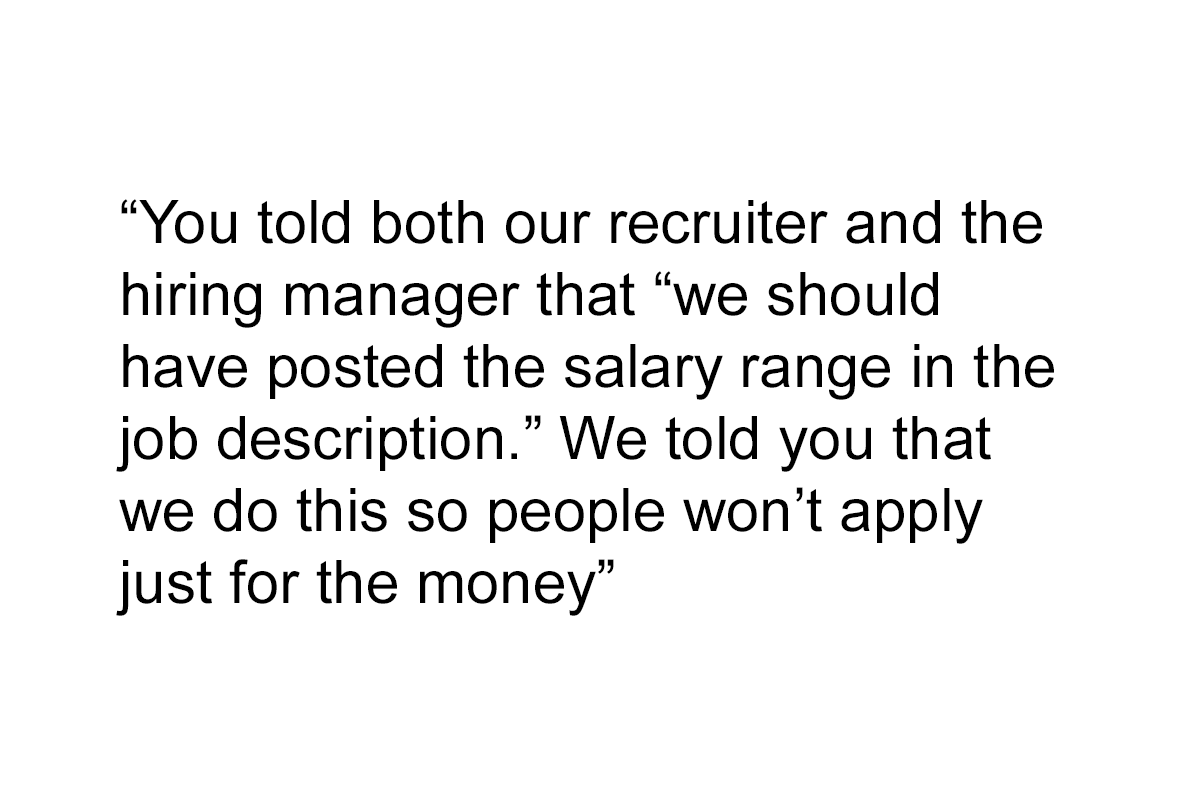
Company Sends An Email Explaining Why They Rejected A Candidate And The Internet Is Roasting Them
InterviewJob interviews can be stress-inducing. We always want to make sure we arrive on time, are as prepared as possible and make a flawless first impression. As candidates, we tend to be extremely concerned about what the interviewer thinks of us, but sometimes interacting with a hiring manager can actually make us lose interest in a position.
Last week, the “F*ck You I Quit” Twitter account posted a screenshot of a hiring manager rejecting an applicant via email, and it caused some stir with their audience. F*ck You I Quit has over 160k followers on Twitter with a bio stating their mission: “highlighting workers’ conflicts with poor management and corporate greed”. Below, you can read the frustrating email as well as responses from Twitter users infuriated by the lack of professionalism displayed and an interview with the creator of F*ck You I Quit.
And if you’re looking for more awful employer stories later, check out these two Bored Panda articles here and here.
Last week, the F*ck You I Quit Twitter account shared a screenshot of an unprofessional rejection email that was sent to a job candidate
Image credits: f**kyouiquit
We reached out to the creator of F*ck You I Quit to hear what inspired him to create this account. “I was fed up seeing story after story of people being taken advantage of by their jobs or bosses,” he told us. “I’ve had plenty of bad jobs myself. The whole corporate office park credo has always been unnerving to me and hearing other people’s workplace horror stories really struck home and inspired me to want to help spread that message. Watching people stand up to bad situations is empowering.”
We also asked what the goal of his account is. “The main purpose… is to call out all of these profiteering corporations who employ bad bosses, illegal business practices, awful working conditions, horrible hiring practices and all these other truly awful corporate norms a lot of us here in the US think are normal. They aren’t normal. We’ve just been conditioned to think they are. These major corporations are pulling in record profits while raising prices and simultaneously refusing to raise wages. They need to be called out on it.” He went on to explain that, “When a company says that they don’t have enough money to give you a performance or cost of living wage increase and then they brag to their investors on an earnings call that they are raking it in, well, screw that. They’re lying to you. And all you have to do is look at the company’s financial statements to prove it. The working class is suffering and building fortunes for a few select people at the top. Costs on everything have skyrocketed; rent, transportation, childcare, healthcare, and even food are all becoming unaffordable for a lot of people. It has to stop.”
When asked if it’s common to encounter unprofessional hiring managers and employers, he told us, “It’s more common than it should be that’s for sure. It’s not that hard to treat people with dignity and respect. A modicum of professionalism is all people are expecting in the hiring process. Companies need to be upfront about salary and benefits. Workers aren’t there simply for the ‘honor of working for your prestigious firm’. We’ve got bills to pay and busy lives. Don’t waste people’s time and people won’t waste yours. We all win.”
Lastly, he wanted to add that “job hunting is hard, exhausting, and downright awful”. “If employers are hurting for staff, they need to make sure their hiring practices are as easy as possible. No more making people guess what they might be paid. No more two or three identical forms to fill out with all the same information that’s already been provided on your resume. No more triple interviews that have a ton of test works involved. If you absolutely need a working interview, guess what, that’s still work. You need to pay people for that. Having people take significant time off work, multiple times, is extremely disruptive. Hiring managers need to do better.”
Readers responded to the story by calling out the company for their unreasonable expectations
Image credits: heather_reindl
Image credits: ceriseskies17
Image credits: fuzzyironman
Image credits: JOzereko
Image credits: DragonNexus
Image credits: Cassius_Dundee
Image credits: kingpazn
Image credits: LonelyGoomba
Image credits: Glasses2themax
Image credits: theQuick_Manalt
Image credits: MightyMack03
Image credits: Xylorjax
Image credits: harvey5454
Image credits: GypsyInAmerica
Image credits: maquinbeaury
Image credits: dude2128506
A recruiter and hiring manager arriving late to an interview is unprofessional enough, but expecting employees to work for an incentive other than pay is just unrealistic. Lack of salary transparency is a common issue, but it’s unfair to employees. According to a report from Salary.com, only one in four employees say their employer is open about pay, and one third don’t think they’re paid fairly compared to their colleagues. In recent years, workers have been encouraging each other to start openly discussing their wages to prevent discrimination and shrink pay gaps. In the United States, white women still earn an average of 79% what white men make, and the rates are even worse for women of color. When employees have no idea what their coworkers are being paid, it’s hard to prove that a company is contributing to the wage gap.
According to Time Magazine, salary transparency is still uncommon in the private sector. “About 17% of private companies practice pay transparency, while 41% discourage and 25% explicitly prohibit discussion of salary information.” It’s speculated that companies fear wage transparency because it will be “difficult to hire talented staffers at lower rates”, and that pay rates could be taken out of context. But employees deserve honesty, and they’re entitled to the income their skill levels warrant
Luckily, times have started to change. New York state is one of the latest locations to enact new pay transparency laws this year, requiring “any company with more than four employees [to] disclose salary ranges for all job postings”. This must include the “minimum and maximum annual salary or hourly wages”, or businesses can be served with a substantial fine. Current employees will also be able to sue employers who “violate the law related to jobs, promotions or transfer opps”.
It’s time companies begin looking out for employees and stop trying to squeeze as much labor out of workers as they can for the lowest rates possible. Salary transparency should be the minimum requirement in job postings to save everyone involved from wasting time. If you’re concerned about pay gaps around the globe or have experience with unprofessional hiring practices, we’d love to hear your thoughts in the comments section below.
Some people even provided personal stories of similarly aggravating experiences when job hunting
Image credits: Albatross
Image credits: Friar_Faithful4
Image credits: hardpromises123
Image credits: Bear2Roo
Image credits: darthselyna
Image credits: JamesCepeda8
Image credits: TheRealHoarse
Image credits: Soapscum628
Image credits: kerrydonahue75
Image credits: Khromozomes
Image credits: kati_why
Image credits: scReamtheheRo
Image credits: aviarian
Image credits: Simonetheboss2
Image credits: dmc_dmcc
Image credits: angryjoeIA
I’m in it for the money because I had to borrow so much to get the education to qualify for the job, and now have to pay it back. You want people who have no hefty student loans to pay back? Don’t require a Masters degree for an entry level job my father’s generation only needed a high school diploma to get—-and be fully trained for, since it’s an ENTRY LEVEL position, while drawing a salary he could actually live on!
Don't believe what you're being told. There is no labor shortage. People are just fed up with working in toxic environments for p**s pay. The person who received this email is the perfect example. They weren't hired because they weren't willing to put up with anyone's bs and weren't afraid to let people know it. If this job went unfilled, the company would say it's due to a labor shortage when in fact it's due to them being asshats and this person not being willing to put up with asshatery.
They won’t say “labor shortage”, though. They’ll just whine that “nobody wants to work anymore”. We should throw them a pity party, and hire the world’s smallest violin to play “My Heart Bleeds For You”.
Load More Replies...You know it's beyond hypocritical because the asshat who wrote that also is working for the money and damned well knows it.
Beginning January 2023, it will be illegal for employers in Washington State with 15 or more employees to post a job without disclosing the pay range and benefits.
What really bothers me (and this is a bit off topic) is the fact that these places expect blind loyalty from their employees, but cannot be bothered to return the favor. "OH, you need to find a second job because we're not paying you enough? Traitor!!!"
I don't apply for a job unless it’s posting the salary as well. It’s a red flag/a big time waste when they don’t. It means it’s low. Why else hide it? Worse thing is when you go through 3 interviews only to learn starting range is 12$ an hr. It’s like wow you just wasted everyones time. 🤯
They're trying to shame us into not talking about money. It's so obvious what's happening. The boomers and gen x were shamed into that and they think it's going to work on the younger generations. Like it's embarrassing or low class to talk about your salary. The 1% really pulled this off for a long time. They still have a hold on 30% of the population of the US. It's also dangerous bc they are the lawmakers and the people that appoint judges. Now women and gay people are losing their rights. This is what Reagan meant when he coined trickle down. The hatred trickles down not the wealth
I love my job. I truly love what I do and the company that I work for because they treat people well, but I would not come here for free. End of story. Two of the things I love most about this job are the money and benefits.
A lot of these companies are going to have to start ponying up better wages. It used to be a surplus of people to the jobs available. It's now flipped to where there aren't enough people to fill low paying thankless jobs. People are starting to figure out what their time is worth. Recruiters need to wise up or they'll be the ones looking for work....
Can I get a slow clap for the hero who was brave enough to say all this to a recruiter? I've been interviewing for a year and spend hours and hours prepping for 8-10 hour interviews with 8 different people, customize my resume and portfolio—only to get a carbon-copy rejection letter from the firm.
Some companies don't even give you a carbon copy. They leave it to you to ask if you got the job.
Load More Replies...Remember folks it typically costs a couple € thousand to find and recruit even for a "low level" employ at a company. If everyone stands up for themselves, employers will soon learn it's too costly to mess potential employees about
Definitions lost in current usage: “job:” applied efforts and skills exchanged for wages. “Profession:” job that serves the public good (legal, medical, etc. as opposed to merchant). “Vocation:” a personal call from God to sacrifice your life in His service. No matter how “visionary,” your boss cannot issue a vocation.
Long ago I applied for a job and asked what the salary range was. I was told that would be discussed if I was called in for an interview. I told the woman (who would be interviewing me) that I wouldn't even consider the position if it wasn't at least $12/hour (yeah - it was awhile ago), so if they weren't prepared to pay that minimum I would appreciate being told so as to not waste my time or theirs. Blah, blah, blah & I got called in for an interview. I aced it. I knew I had the skills and experience they were looking for, so I wasn't really worried. After more than an hour, she finally gets around to discussing the pay scale and tells me the position starts at $5.75 per hour. I lost it. I literally screamed at her, "You f*****g idiot! I had to take the day off and ride 2 buses to get here AFTER I specifically told you I wouldn't work for less than $12. What kind of simple minded moron put YOU in charge of hiring?" Yeah, I was pissed.
“Not just for the money”? Like what do you think the purpose of a job is? For fun?
"We don't want employees who are just in it for the money." I'd ask, "Okay, what are you/the company in it for?" "So, you pay the absolute top dollar to get the best possible employees, because this company has no interest in making a profit?" Was this a charity? A government job?
I'd rather not work. There are many things I'd prefer to do to occupy my time. I do work, because I'm not a trust fund baby and I need money to survive, which is motivation enough for working.
Maybe if they don't like employees asking to be paid we should say, "OK, you pay all my bills, healthcare etc and give me some money to spend on myself and I'll work here for free."
I applied for a second part-time job at a grocery. The HR manager asked the required questions from a list, like why I wanted to work there. "Because you might pay me." She asked where I saw myself in five years. "Retired." She laughed and hired me, because they were more desperate than I was.
The last job I interviewed for had really long wait time between the interview processes. The recruiter was borderline rude as well. I did have a good interview experience with the managers though. I didn't get the job in the end and the recruiter never called to let me know. But the regional manager called me and let me know why they didn't give me an offer (they went for an internal candicate in the end). She offered me an interview for the same position at a different office location, but it was too far away from where I live and I am not planning to relocate. She let me know that they usually have a few openings each year and encouraged me to apply again when the position opens up. She also told me they were impressed by my current work and what made me stand out from the other candidates. It was the nicest rejection I have received. I will definitely try to apply again in the future.
They could have asked if you are prepared to stay on their books in case another position came up in the future. Or if the person they put in the job didn't live up to expectations.
Load More Replies...All of these are why I’m starting to consider freelancing. I could set my own prices, set my own schedule, and adjust everything to ensure I can keep living a life I like. Especially since there aren’t many businesses in my area with photography-related positions…
As a person who has been self employed for most of their working life I can tell you that there are people who don't work for the money, but for the simple joy of what they do. It took burning out and going broke (at the same time) for me to realise that working for the love of it was only good to a point. After several years of being employed I am back to running my own business, but am dead set on making it a success by charging people. P.S. I use these threads to help guide my staff related management practices.
I’m in it for the money because I had to borrow so much to get the education to qualify for the job, and now have to pay it back. You want people who have no hefty student loans to pay back? Don’t require a Masters degree for an entry level job my father’s generation only needed a high school diploma to get—-and be fully trained for, since it’s an ENTRY LEVEL position, while drawing a salary he could actually live on!
Don't believe what you're being told. There is no labor shortage. People are just fed up with working in toxic environments for p**s pay. The person who received this email is the perfect example. They weren't hired because they weren't willing to put up with anyone's bs and weren't afraid to let people know it. If this job went unfilled, the company would say it's due to a labor shortage when in fact it's due to them being asshats and this person not being willing to put up with asshatery.
They won’t say “labor shortage”, though. They’ll just whine that “nobody wants to work anymore”. We should throw them a pity party, and hire the world’s smallest violin to play “My Heart Bleeds For You”.
Load More Replies...You know it's beyond hypocritical because the asshat who wrote that also is working for the money and damned well knows it.
Beginning January 2023, it will be illegal for employers in Washington State with 15 or more employees to post a job without disclosing the pay range and benefits.
What really bothers me (and this is a bit off topic) is the fact that these places expect blind loyalty from their employees, but cannot be bothered to return the favor. "OH, you need to find a second job because we're not paying you enough? Traitor!!!"
I don't apply for a job unless it’s posting the salary as well. It’s a red flag/a big time waste when they don’t. It means it’s low. Why else hide it? Worse thing is when you go through 3 interviews only to learn starting range is 12$ an hr. It’s like wow you just wasted everyones time. 🤯
They're trying to shame us into not talking about money. It's so obvious what's happening. The boomers and gen x were shamed into that and they think it's going to work on the younger generations. Like it's embarrassing or low class to talk about your salary. The 1% really pulled this off for a long time. They still have a hold on 30% of the population of the US. It's also dangerous bc they are the lawmakers and the people that appoint judges. Now women and gay people are losing their rights. This is what Reagan meant when he coined trickle down. The hatred trickles down not the wealth
I love my job. I truly love what I do and the company that I work for because they treat people well, but I would not come here for free. End of story. Two of the things I love most about this job are the money and benefits.
A lot of these companies are going to have to start ponying up better wages. It used to be a surplus of people to the jobs available. It's now flipped to where there aren't enough people to fill low paying thankless jobs. People are starting to figure out what their time is worth. Recruiters need to wise up or they'll be the ones looking for work....
Can I get a slow clap for the hero who was brave enough to say all this to a recruiter? I've been interviewing for a year and spend hours and hours prepping for 8-10 hour interviews with 8 different people, customize my resume and portfolio—only to get a carbon-copy rejection letter from the firm.
Some companies don't even give you a carbon copy. They leave it to you to ask if you got the job.
Load More Replies...Remember folks it typically costs a couple € thousand to find and recruit even for a "low level" employ at a company. If everyone stands up for themselves, employers will soon learn it's too costly to mess potential employees about
Definitions lost in current usage: “job:” applied efforts and skills exchanged for wages. “Profession:” job that serves the public good (legal, medical, etc. as opposed to merchant). “Vocation:” a personal call from God to sacrifice your life in His service. No matter how “visionary,” your boss cannot issue a vocation.
Long ago I applied for a job and asked what the salary range was. I was told that would be discussed if I was called in for an interview. I told the woman (who would be interviewing me) that I wouldn't even consider the position if it wasn't at least $12/hour (yeah - it was awhile ago), so if they weren't prepared to pay that minimum I would appreciate being told so as to not waste my time or theirs. Blah, blah, blah & I got called in for an interview. I aced it. I knew I had the skills and experience they were looking for, so I wasn't really worried. After more than an hour, she finally gets around to discussing the pay scale and tells me the position starts at $5.75 per hour. I lost it. I literally screamed at her, "You f*****g idiot! I had to take the day off and ride 2 buses to get here AFTER I specifically told you I wouldn't work for less than $12. What kind of simple minded moron put YOU in charge of hiring?" Yeah, I was pissed.
“Not just for the money”? Like what do you think the purpose of a job is? For fun?
"We don't want employees who are just in it for the money." I'd ask, "Okay, what are you/the company in it for?" "So, you pay the absolute top dollar to get the best possible employees, because this company has no interest in making a profit?" Was this a charity? A government job?
I'd rather not work. There are many things I'd prefer to do to occupy my time. I do work, because I'm not a trust fund baby and I need money to survive, which is motivation enough for working.
Maybe if they don't like employees asking to be paid we should say, "OK, you pay all my bills, healthcare etc and give me some money to spend on myself and I'll work here for free."
I applied for a second part-time job at a grocery. The HR manager asked the required questions from a list, like why I wanted to work there. "Because you might pay me." She asked where I saw myself in five years. "Retired." She laughed and hired me, because they were more desperate than I was.
The last job I interviewed for had really long wait time between the interview processes. The recruiter was borderline rude as well. I did have a good interview experience with the managers though. I didn't get the job in the end and the recruiter never called to let me know. But the regional manager called me and let me know why they didn't give me an offer (they went for an internal candicate in the end). She offered me an interview for the same position at a different office location, but it was too far away from where I live and I am not planning to relocate. She let me know that they usually have a few openings each year and encouraged me to apply again when the position opens up. She also told me they were impressed by my current work and what made me stand out from the other candidates. It was the nicest rejection I have received. I will definitely try to apply again in the future.
They could have asked if you are prepared to stay on their books in case another position came up in the future. Or if the person they put in the job didn't live up to expectations.
Load More Replies...All of these are why I’m starting to consider freelancing. I could set my own prices, set my own schedule, and adjust everything to ensure I can keep living a life I like. Especially since there aren’t many businesses in my area with photography-related positions…
As a person who has been self employed for most of their working life I can tell you that there are people who don't work for the money, but for the simple joy of what they do. It took burning out and going broke (at the same time) for me to realise that working for the love of it was only good to a point. After several years of being employed I am back to running my own business, but am dead set on making it a success by charging people. P.S. I use these threads to help guide my staff related management practices.

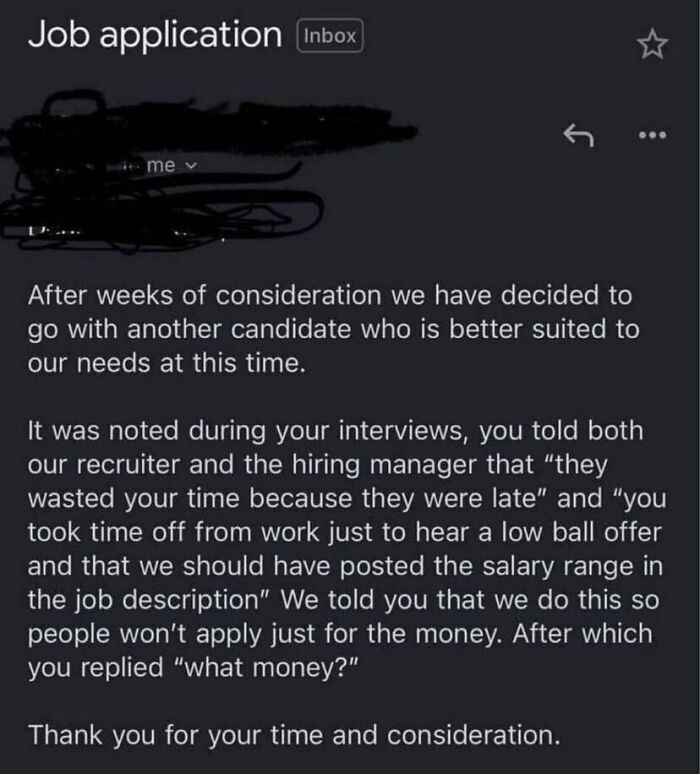
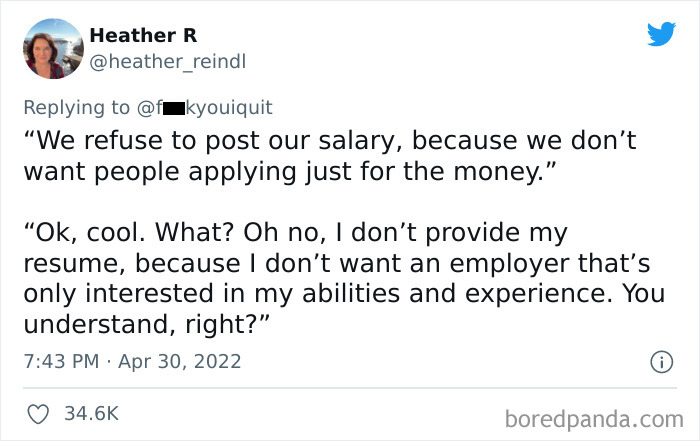
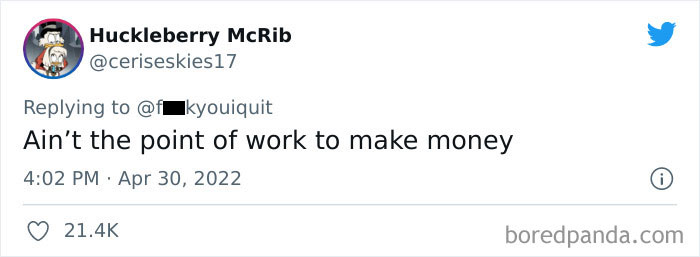
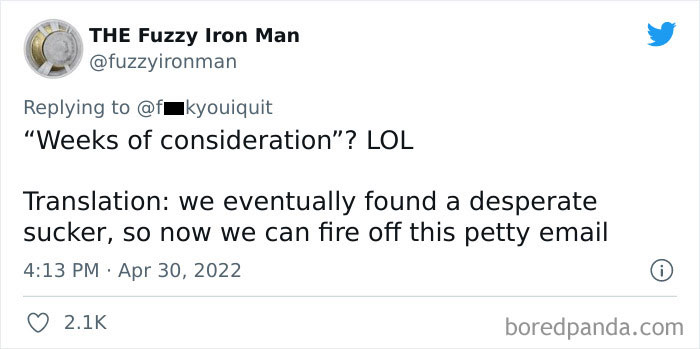
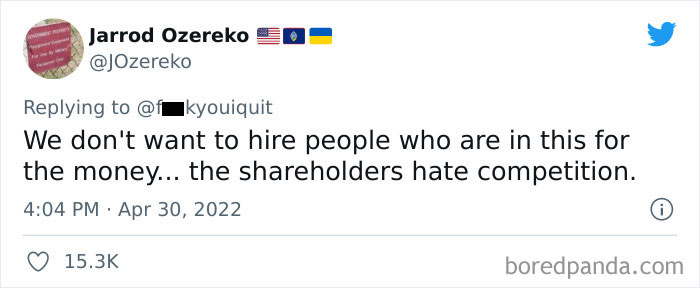
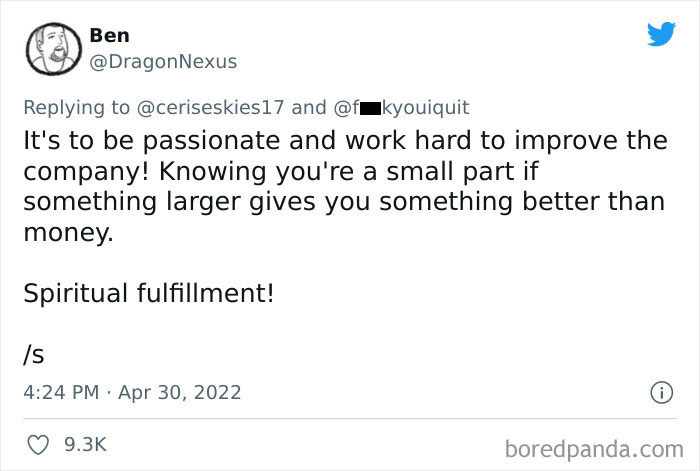
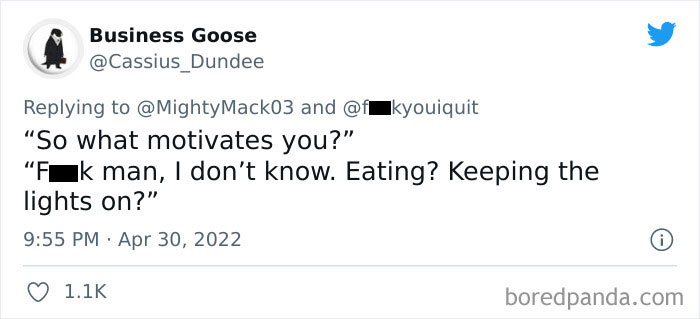
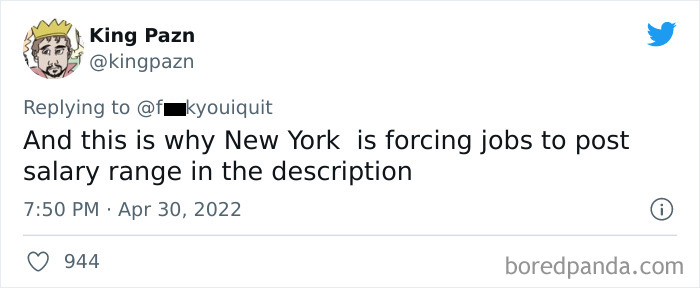
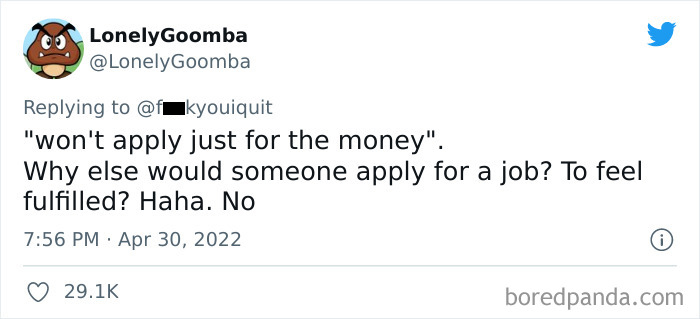
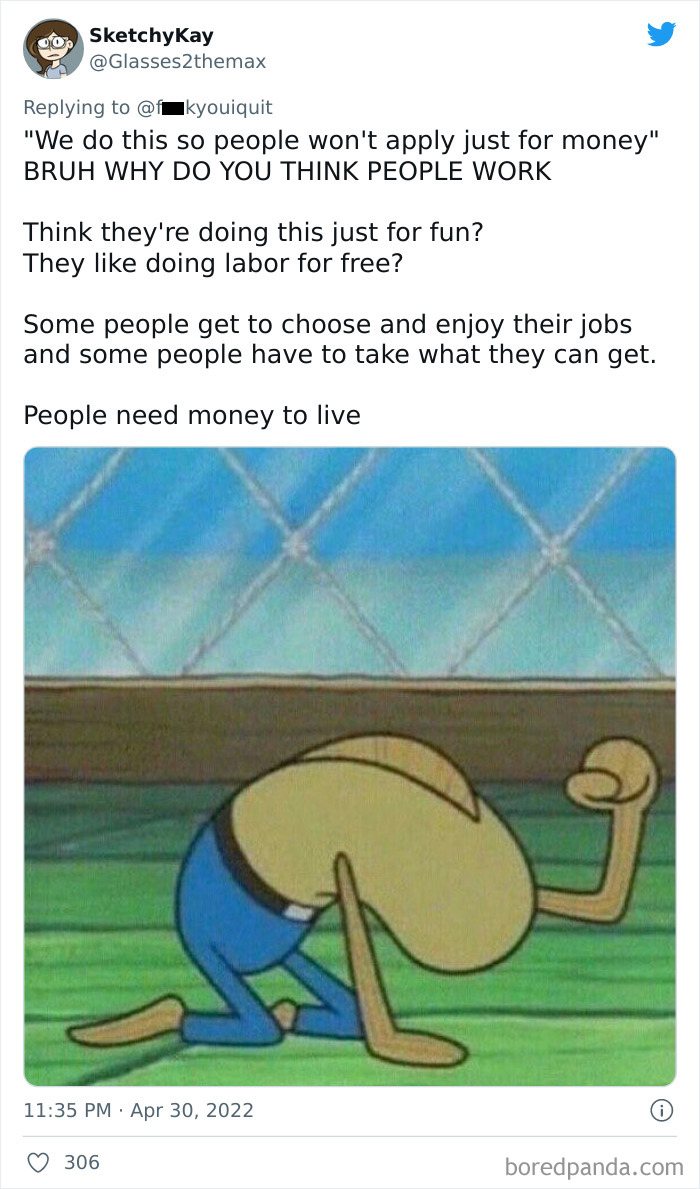
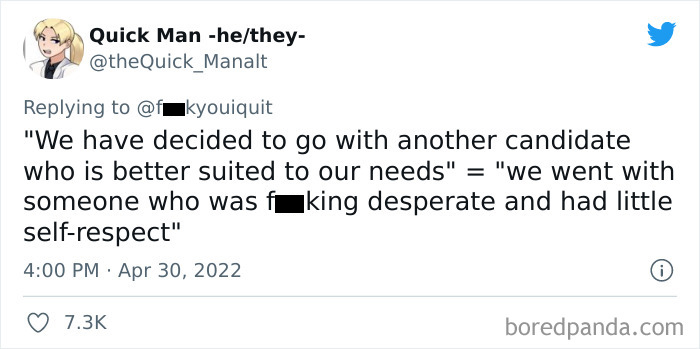
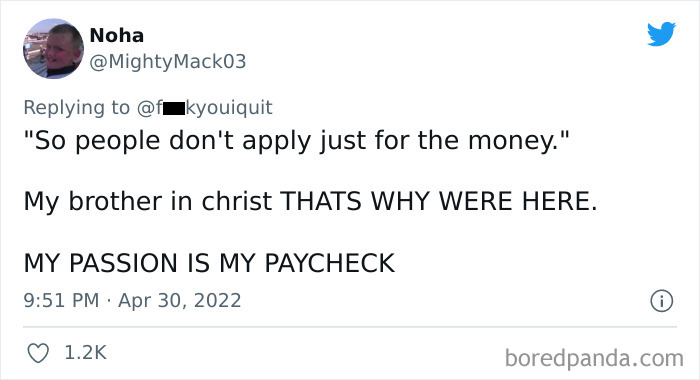
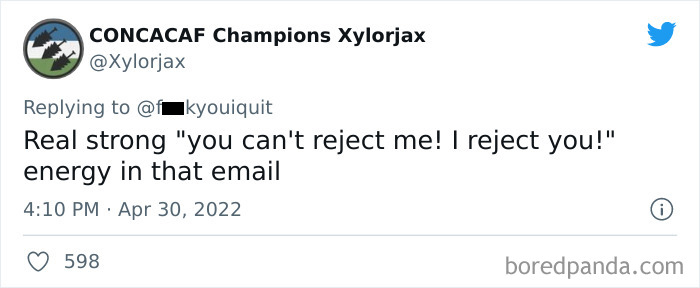
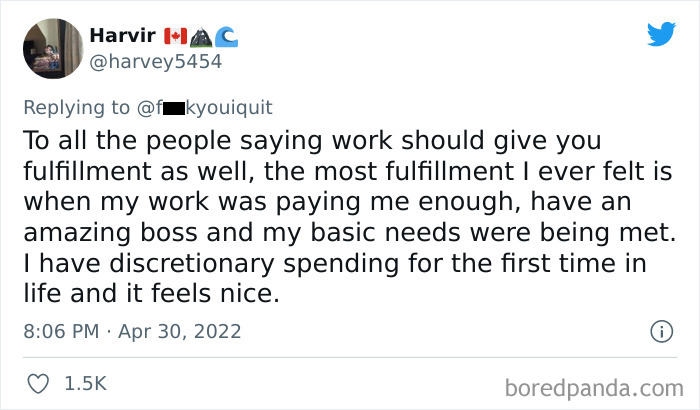
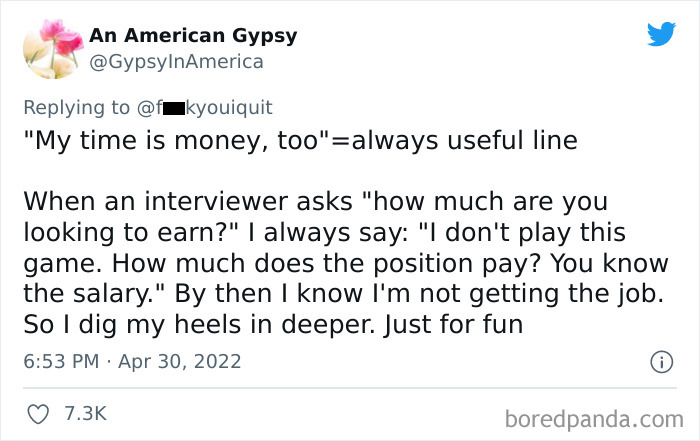
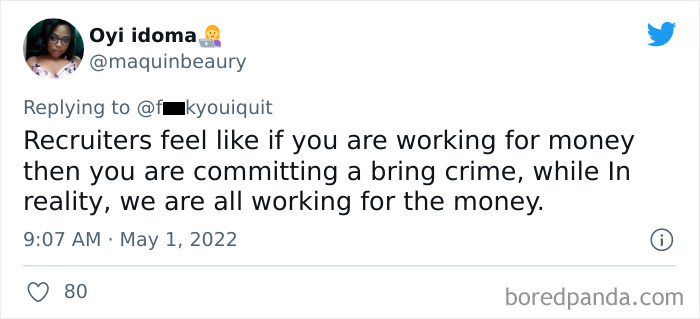
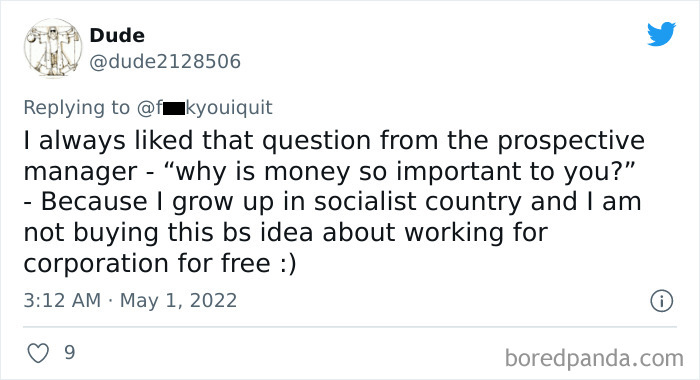
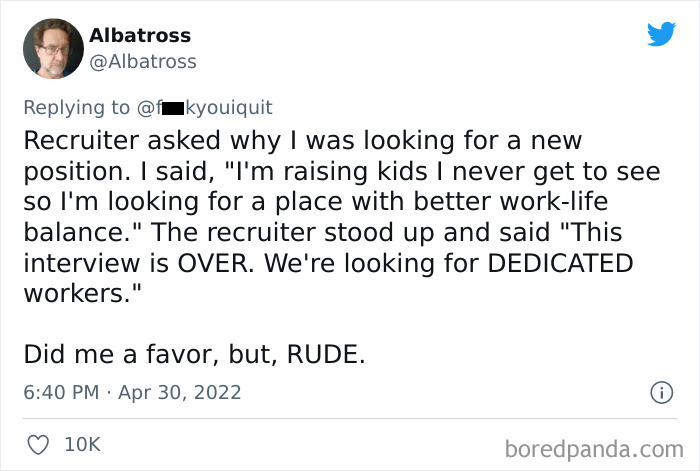
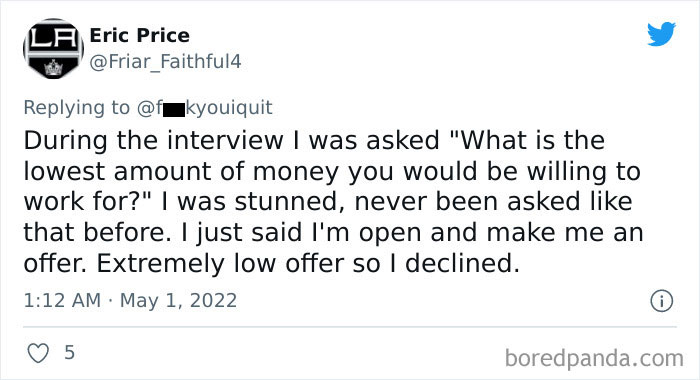
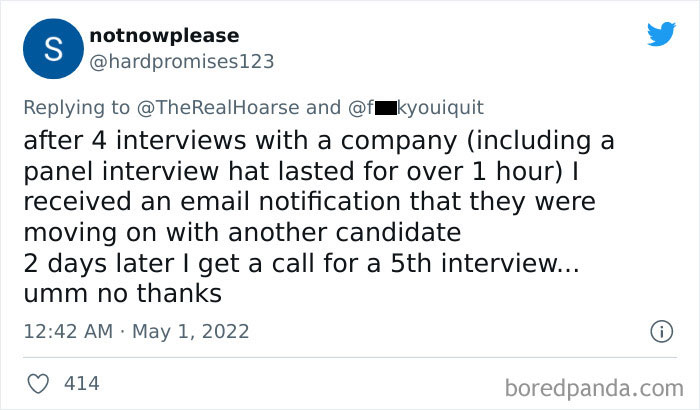
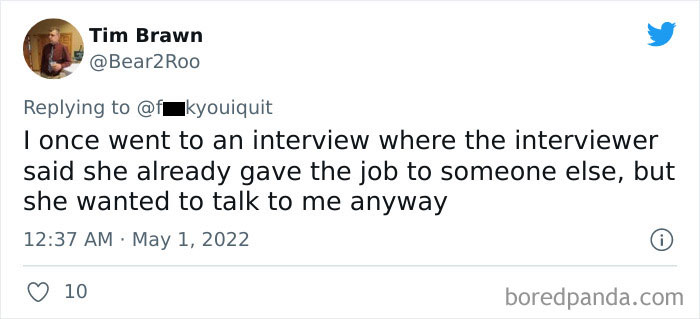
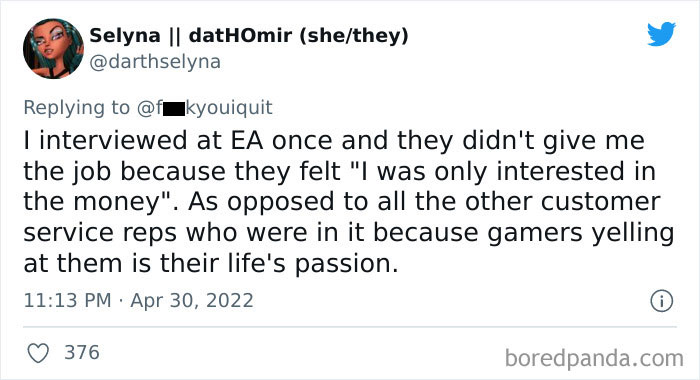
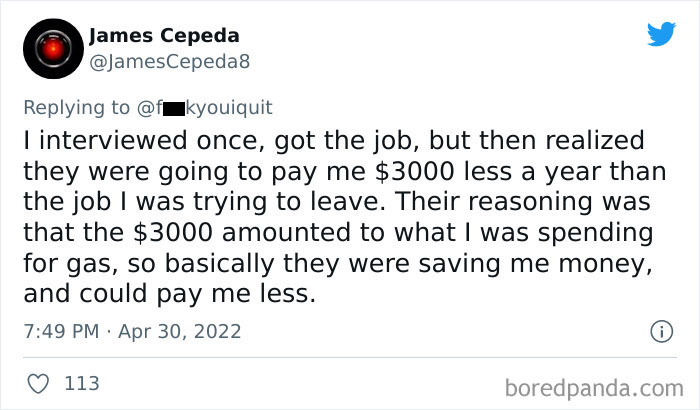
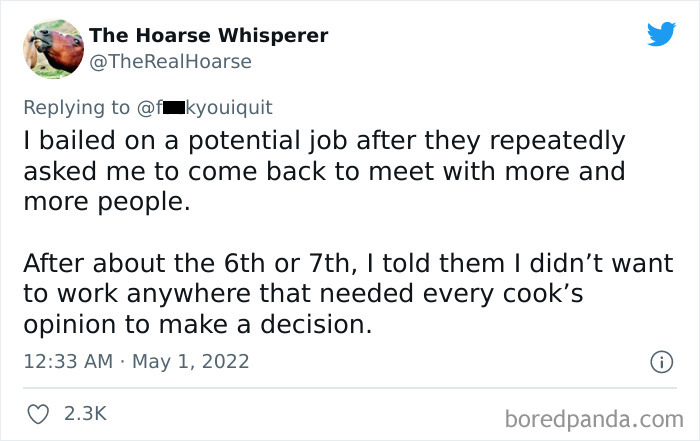
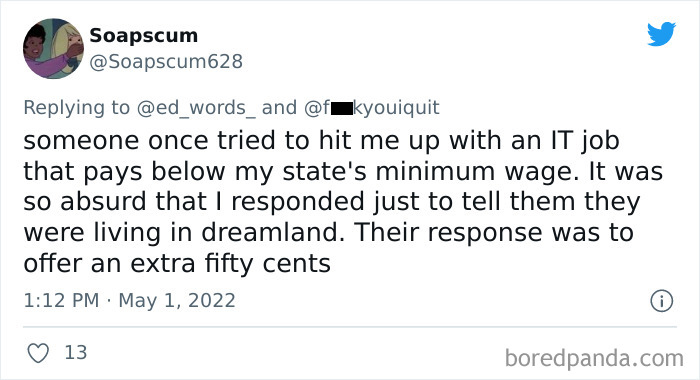
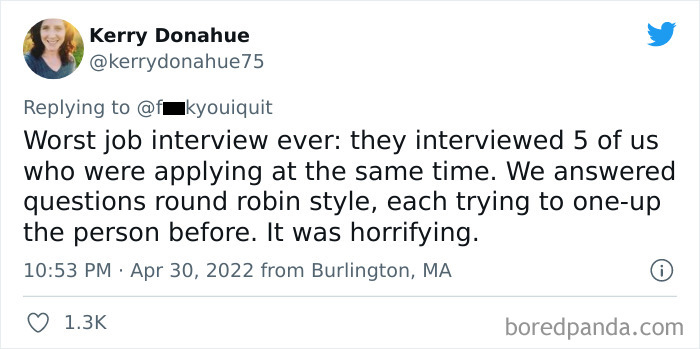
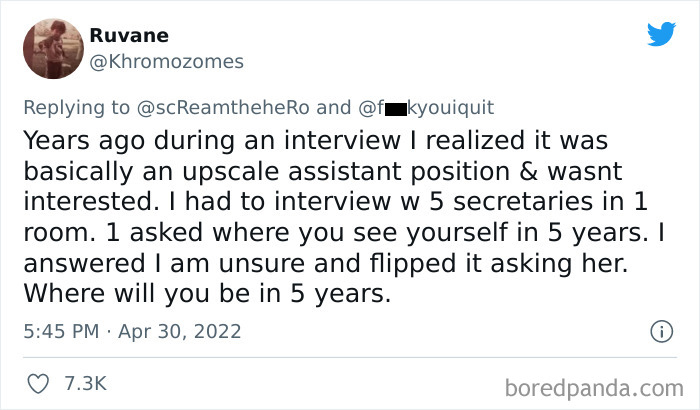
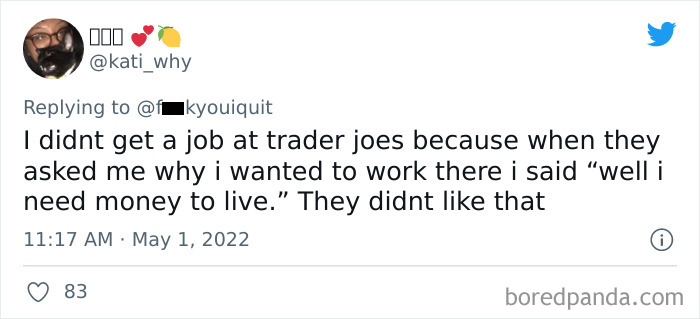
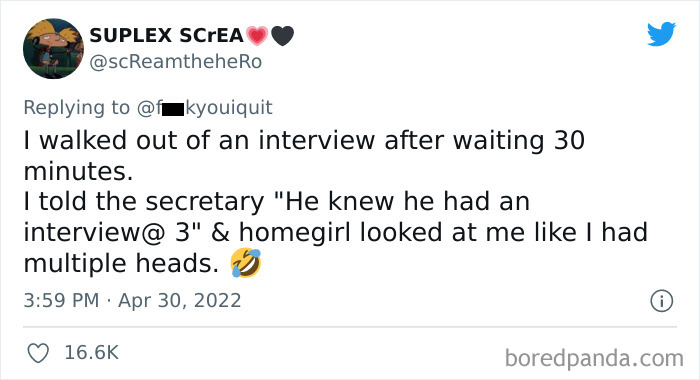
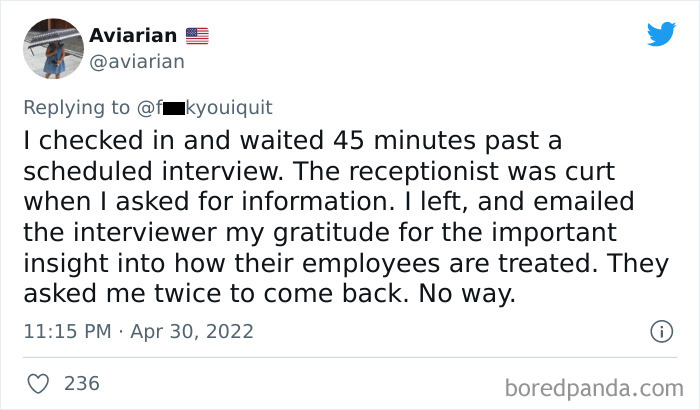
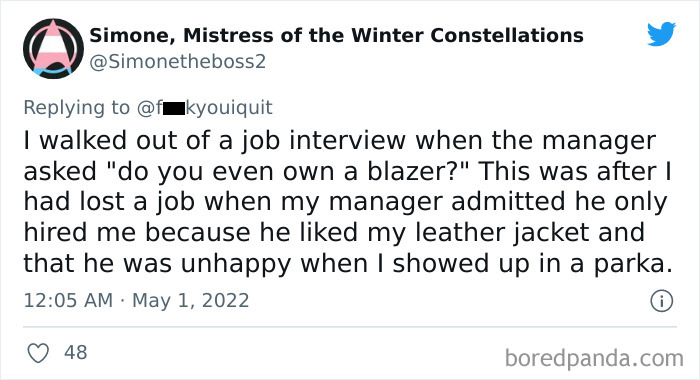
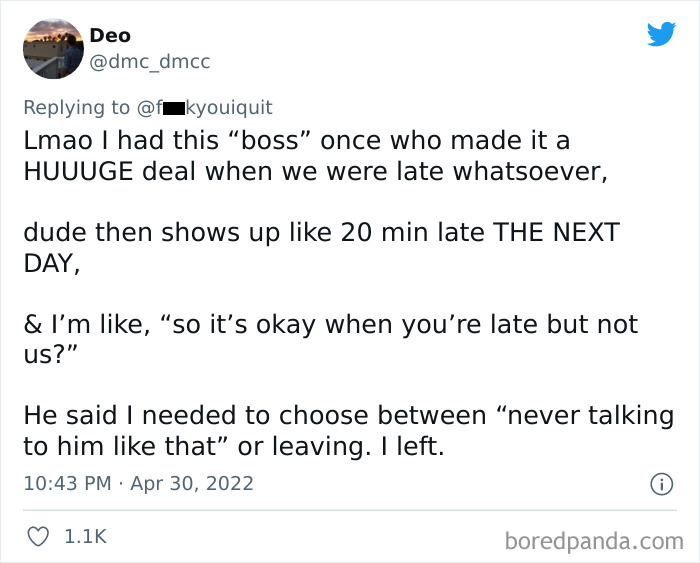
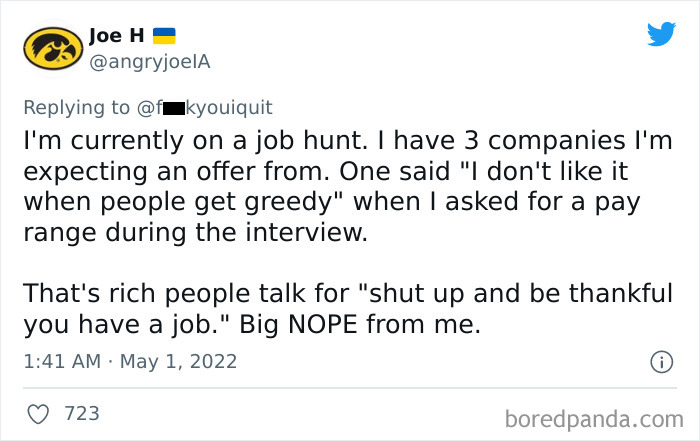




114
29